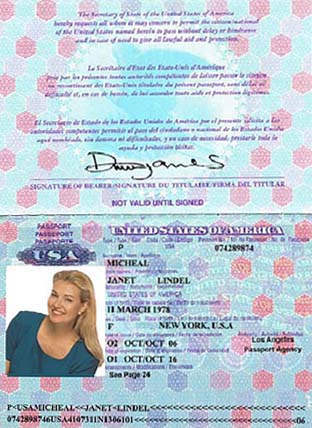| Available in | English |
|---|---|
| Created by | Michael Berry |
| URL | 419eater |
| Registration | Required for full functionality |
| Launched | September 2003 |
| Current status | Open |
419eater.com is a scam baiting website which focuses on advance-fee fraud. The name 419 comes from "419 fraud", another name for advance fee fraud, and itself derived from the relevant section of the Nigerian criminal code. The website founder, Michael Berry, goes by the alias Shiver Metimbers. As of 2013, the 419 Eater forum had over 55,000 registered accounts. According to one member, "Every minute the scammer I'm communicating with is spending on me is a minute he is not scamming a real potential victim." [1]
The website chronicles various reverse scams, known as "baits," with e-mail exchanges between the baiters and the scammers, and commentary by the participants. The site hosts photographs of individuals reported to be scammers in humorous poses, or holding signs such as "I recommend 419eater". These photographs, according to the members who post them, were in most cases obtained during the process of a bait: the baiter, posing as an actual victim, will request the photos from the scammer, who will comply in the belief that the "victim" is about to fall for the scam and send money.
In some cases, the scambaiter claims to have had the scammers send them money with a ploy similar to the original flim flam. This is known informally as cash baiting. According to Berry as documented in some of his successful cash baits, the proceeds of such reverse scams were given to a local charity. Now however, cash-baiting is frowned upon and is against 419eater.com rules, which are rigorously enforced.
The website also includes a message forum and a bulletin board where scambaiters can post messages to communicate with each other. New scambaiters can request to be assigned a "mentor" to assist them in learning how to bait.
The 419eater community previously engaged in the activity of identifying and removing fake banks and other websites created by the scammers from the Internet, as well as shutting down bank accounts used by scammers in the process of their illegal scamming activities. It did this in cooperation with Artists Against 419, which hosts a large, publicly accessible database of fake banks and similar fraudulent websites. In 2020, Artists Against 419 severed its ties with 419eater.com and the Fake Site forum is now locked [2]
Berry was a featured guest on BBC Radio 2's The Jeremy Vine Show on November 1, 2006. Berry has also collected some of the scambaits shown on the website, in a book Greetings in Jesus' Name!: The Scambaiter Letters. [3] In early 2008, Berry retired from active involvement in 419eater.com to concentrate on work and other projects, [4] handing control over to one of the site's long-running system administrators.
Beginning September 6, 2007, [5] the 419eater.com website—among other "scam warning" websites—was subjected to a massive botnet DDoS attack which rendered the site unreachable. However, by September 18, 2007, the site and forums were both back online.
419eater and its operatives were profiled on the September 12, 2008 episode of Public Radio International's This American Life , [6] specifically one particular bait that ran for 100 days starting in April 2008 and involved sending a scammer named Adamu from Lagos, Nigeria to Abéché, Chad, a dangerous and politically unstable region. [7]
419eater.com was quoted as saying "When the scammer sends you a fake passport that looks like it was made by a blind hamster with a piece of charcoal in ten seconds, you praise it and say it really helps you to build trust". Several baiters "talked a scammer into traveling from Port Harcourt, Nigeria to Darfur to pick up a nonexistent $500,000. The 3,000-mile roundtrip got the scammer stranded for two weeks before he managed to make it home". Although the work of 419eater.com baiters does put scammers in danger, "the general consensus...was that they feel even the most dangerous of safaris is payback for all the scammers do. 'The scammer makes the decision to put themselves in harm's way; if something happens to them, so be it. Most of them would have no problem with you dying if it meant that they would make a dollar'". Another baiter was quoted as saying "Whether he is wandering through the desert hundreds of miles from home, or making yet another fruitless trip to the Moneygram office, that's all time he is not behind a computer scamming someone's elderly parents." [8]
In January 2014, members of 419eater.com appeared in two segments of the Channel 4 series Secrets of the Scammers. In the first segment, scambaiters persuaded a scammer to travel from London to a remote location in Cornwall by train and taxi, to meet a victim (played by a baiter) and collect payment for a gold deal. In the second segment, a female scammer met with two scambaiters posing as victims in Trafalgar Square, to pass them a fake check. This scammer was subsequently questioned by the police. [9]
In November 2014, members of 419eater.com appeared in a segment of the CBC Television series Dot.Con. During the segment, a scambaiter persuaded a scammer to travel from Paris to a remote location in Cornwall by air and taxi, to meet a victim (played by a baiter) and collect payment for a gold deal. Following this, two scammers travelled from London and met with a scambaiter posing as a victim in Plymouth to collect upfront payment for delivery of a trunk box of cash. [10]

An advance-fee scam is a form of fraud and is one of the most common types of confidence tricks. The scam typically involves promising the victim a significant share of a large sum of money, in return for a small up-front payment, which the fraudster claims will be used to obtain the large sum. If a victim makes the payment, the fraudster either invents a series of further fees for the victim to pay or simply disappears.

A confidence trick is an attempt to defraud a person or group after first gaining their trust. Confidence tricks exploit victims using their credulity, naïveté, compassion, vanity, confidence, irresponsibility, and greed. Researchers have defined confidence tricks as "a distinctive species of fraudulent conduct ... intending to further voluntary exchanges that are not mutually beneficial", as they "benefit con operators at the expense of their victims ".
Scam baiting is a form of internet vigilantism primarily used towards advance-fee fraud, IRS impersonation scam, technical support scams, pension scams, and consumer financial fraud.

Internet fraud is a type of cybercrime fraud or deception which makes use of the Internet and could involve hiding of information or providing incorrect information for the purpose of tricking victims out of money, property, and inheritance. Internet fraud is not considered a single, distinctive crime but covers a range of illegal and illicit actions that are committed in cyberspace. It is, however, differentiated from theft since, in this case, the victim voluntarily and knowingly provides the information, money or property to the perpetrator. It is also distinguished by the way it involves temporally and spatially separated offenders.

Email fraud is intentional deception for either personal gain or to damage another individual by means of email. Almost as soon as email became widely used, it began to be used as a means to defraud people. Email fraud can take the form of a "con game", or scam. Confidence tricks tend to exploit the inherent greed and dishonesty of its victims. The prospect of a 'bargain' or 'something for nothing' can be very tempting. Email fraud, as with other 'bunco schemes,' usually targets naive individuals who put their confidence in schemes to get rich quickly. These include 'too good to be true' investments or offers to sell popular items at 'impossibly low' prices. Many people have lost their life savings due to fraud.
The black money scam, sometimes also known as the "black dollar scam" or "wash wash scam", is a scam where con artists attempt to fraudulently obtain money from a victim by convincing them that piles of banknote-sized paper are real currency that has been stained in a heist. The victim is persuaded to pay fees and purchase chemicals to remove the dye, with the promise of a share in the proceeds.

Artists Against 419 is an Internet consumer protection group dedicated to identifying and shutting down 419 scam websites. Its volunteers seek to stop, disrupt or hinder fraudsters' activities by cataloging and reporting fraudulent domains.

A romance scam is a confidence trick involving feigning romantic intentions towards a victim, gaining the victim's affection, and then using that goodwill to get the victim to send money to the scammer under false pretenses or to commit fraud against the victim. Fraudulent acts may involve access to the victim's money, bank accounts, credit cards, passports, e-mail accounts, or national identification numbers; or forcing the victims to commit financial fraud on their behalf.
Voice phishing, or vishing, is the use of telephony to conduct phishing attacks.
Employment fraud is the attempt to defraud people seeking employment by giving them false hope of better employment, offering better working hours, more respectable tasks, future opportunities, or higher wages. They often advertise at the same locations as genuine employers and may ask for money in exchange for the opportunity to apply for a job.
Telemarketing fraud is fraudulent selling conducted over the telephone. The term is also used for telephone fraud not involving selling.

A work-at-home scheme is a get-rich-quick scam in which a victim is lured by an offer to be employed at home, very often doing some simple task in a minimal amount of time with a large amount of income that far exceeds the market rate for the type of work. The true purpose of such an offer is for the perpetrator to extort money from the victim, either by charging a fee to join the scheme, or requiring the victim to invest in products whose resale value is misrepresented.

A technical support scam, or tech support scam, is a type of fraud in which a scammer claims to offer a legitimate technical support service. Victims contact scammers in a variety of ways, often through fake pop-ups resembling error messages or via fake "help lines" advertised on websites owned by the scammers. Technical support scammers use social engineering and a variety of confidence tricks to persuade their victim of the presence of problems on their computer or mobile device, such as a malware infection, when there are no issues with the victim's device. The scammer will then persuade the victim to pay to fix the fictitious "problems" that they claim to have found. Payment is made to the scammer through ways which are hard to trace and have fewer consumer protections in place which could allow the victim to claim their money back, usually through gift cards.
The locksmith scam is a scam involving fake business listings for cheap locksmith services that, once called out, overcharge the customer. The scam targets people who call a locksmith out of desperation, usually because of being locked out of their car or premises. Locksmith scams have been reported in the U.S., the U.K., and New Zealand.
Ghana has one of the highest rates of cybercrime in the world, ranking 7th in a 2008 Internet Crime Survey. The most popular form of cybercrime in Ghana is cyberfraud and is typically achieved via credit card fraud. However, recent decreases in universal credit card usage has seen the expansion of other cybercrimes such as blackmail and hacking. This growth in crime has warranted a government response, with policies specifically addressing the cyberspace being developed. This has necessitated various studies including a cyber security maturity study which was inaugurated by the Ministry of Communications and conducted by the Global Cyber Security Capacity Center (GCSCC) of the University of Oxford in collaboration with the World Bank.

Kitboga is the Internet alias of an American Twitch streamer and YouTuber whose content primarily focuses on scam baiting against scams conducted over the phone. His channel has over 1 million followers on Twitch, and his YouTube channel has over 3 million subscribers.

Jim Browning is the Internet alias of a software engineer and YouTuber from Northern Ireland whose content focuses on scam baiting and investigating call centres engaging in fraudulent activities.
An overpayment scam, also known as a refund scam, is a type of confidence trick designed to prey upon victims' good faith. In the most basic form, an overpayment scam consists of a scammer claiming, falsely, to have sent a victim an excess amount of money. The scammer then attempts to convince the victim to return the difference between the sent amount and the intended amount. This scam can take a number of forms, including check overpayment scams and online refund scams.

Scammer Payback, also known by his nickname "Pierogi", is the internet alias of an American YouTuber and streamer who specializes in creating content about scam baiting against phone scams. Pierogi works against a variety of scams over the phone, such as technical support scams, refund scams, social security scams, and IRS impersonation scams. His YouTube channel currently has over 5 million subscribers and 607 million total views, making him one of the most prominent scam-baiting content creators on the Internet.